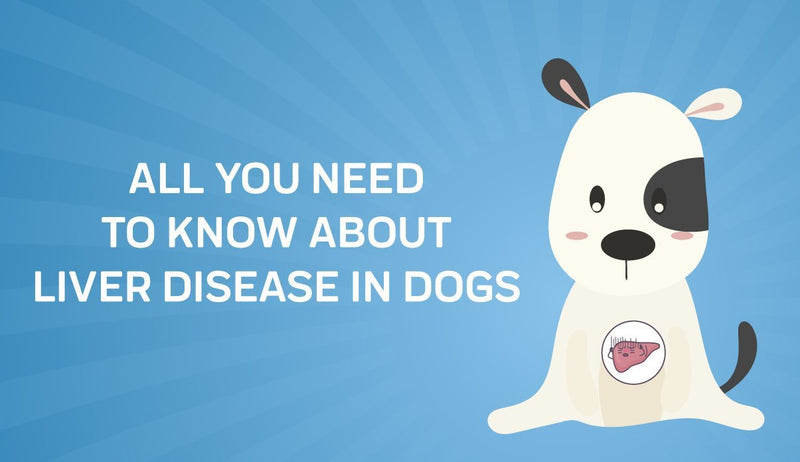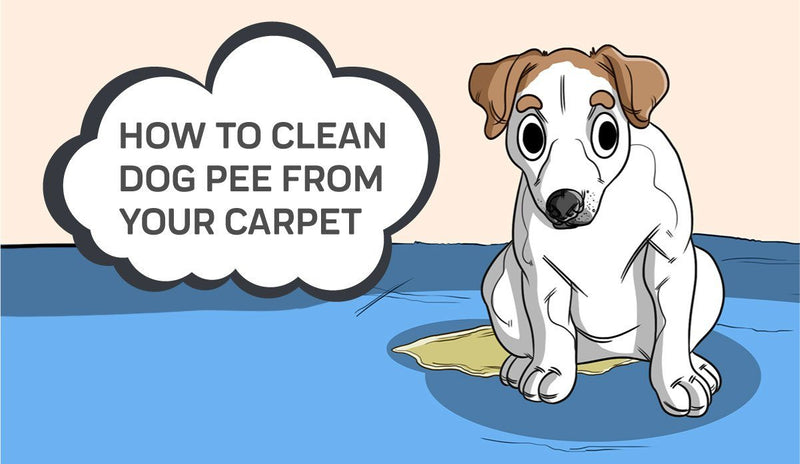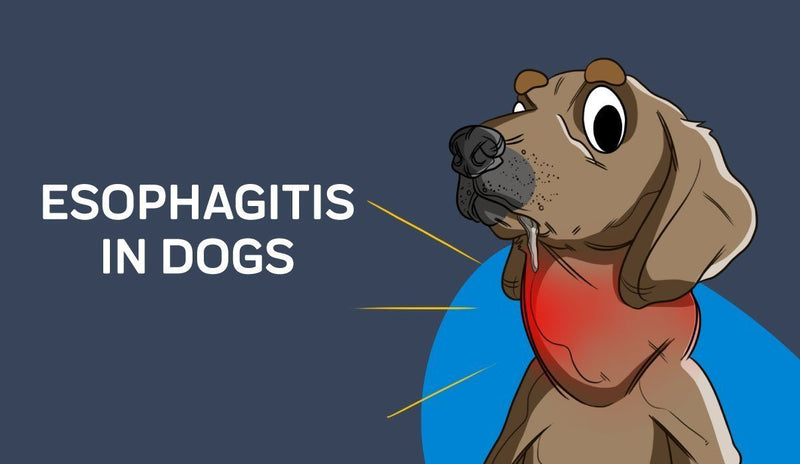 One of the hardest parts about owning a pet is that there are times where your pet's health is going to be a concern. Visiting the vet's office is never fun, but the good news is that the sooner you address a health issue, the sooner your pet can receive the necessary care and appropriate medications to treat the root cause of the problem.
One of the hardest parts about owning a pet is that there are times where your pet's health is going to be a concern. Visiting the vet's office is never fun, but the good news is that the sooner you address a health issue, the sooner your pet can receive the necessary care and appropriate medications to treat the root cause of the problem.
Thankfully, it is very rare for you to experience life-threatening or fatally severe health problems as a pet owner. While it is possible, it is not probable. The best thing you can do when it comes to caring for your pet's well being is to take preventative measures and learn more about what your pet's symptoms mean. This is especially true for cats that are exhibiting signs of gagging.
While it is never a good thing for cats to choke or gag, the symptoms are not always worth getting worried about because sometimes, it is normal. It only becomes concerning when the side effects of the situation do not resolve themselves, or the signs exacerbate and elevate into even worse symptoms.
When it comes to cats and persistent gagging, pet owners might not even be sure that the sounds coming from their cats are gags in the first place. Cats are known to make quite the array of noises. From meowing in excitement and purring with happiness, to chirping during playtime and exhaling heavily when annoyed, cats make a lot of different noises.
But sometimes, the noises are unlike any others that you are used to hearing. The sounds associated with feline gagging are one example of noises that you should pay careful attention to from the moment you are aware of them. First of all, let's talk about gagging and clarify all the ways that it differs from other coughing sounds that cats make.
From there, we will talk about the various causes that could be the source of your cat's gagging. We will go in depth about how big of a role your cat's environment plays when it comes to gagging, too. There are certain things to look out for when determining if your cat's gagging is a passing situation or if you should be more concerned. Let's get started!
How to Tell if Your Cat is Gagging or Just Throwing Up?

Like any situation, in order to solve the problem, it's imperative that you first figure out the cause. When you are dealing with a cat that keeps making coughing noises, it is important to distinguish between cat coughing, gagging, and full-on vomiting.
In order to figure it out, take a close look at your cat's behavior, and make notes on how often and how frequently the noises go on for. A lot of times, the odd sounds are the result of your cats grooming themselves to the point of creating a build-up of fur on their tongues.
When they try to swallow the fur that accumulates on their tongues, it gets trapped in their throats and they have no option other than to cough in an attempt to get the hair out of their way. If your cat doesn't successfully cough up the hair, it ultimately ends up in your cat's stomach.
Now, there are parts of the tongue, called the papillae, and they are the root cause of hair getting stuck to your cat's tongue in the first place. Since they face in the direction of your cat's throat, they brush the hair to the back of your cat's mouth, and that is when the situation starts going downhill. When hair reaches your cat's stomach, it accumulates and becomes what are known as hairballs.
There comes a point where the hairball is incapable of moving even deeper into your cat's digestive tract, and at that point, your cat's body forces the hairball up and out of the throat. In the best case scenarios, the hairball comes up with ease and leaves your cat's body in the form of vomit.
But when your cat struggles to relieve its digestive system of the hairball, instances of gagging are very common. You can think of gagging as the midpoint between hairballs stuck in the stomach and hairballs coughed up as vomit. When you watch a cat as he or she gags, it looks like a painful and uncomfortable experience for your pet to endure.
However, they are actually in the most comfortable, efficient, and productive positions for gagging. You will notice that your cat suddenly crouches down to the ground, hovering just above the floor as they let out a raspy cough.
Being low to the ground gives the irritant a straight pathway to follow. Your cats will make swift movements with their necks, too, and this signifies their attempts to guide the irritant on its way up your cat's throat. Although the process of gagging can be scary and stressful to watch from the outside, your cat is going to be just fine!
These are natural responses that cats invoke when their body tells them it's time to cough up something that is unwanted in their system. The gagging episode will pass as soon as the mission is complete, so try to not interrupt your cat, no matter how difficult it can be to sit back and do nothing in the moment.
Understandably, gagging can be a very normal occurrence. Sometimes, the act of coughing is not enough to bring the hairball out of the stomach and back into the mouth. Coughing is less forceful than gagging, so some cats end up resorting to gagging if they need more power behind their movements. But then again, a hairball is just one example of many possible reasons as to why your cat is gagging.
The Most Common Causes of Feline Gagging
If you have an idea of what your cat may have swallowed to cause the gagging, use your instincts to figure out if the situation warrants immediate help. We touched on hairballs, but those are not necessarily dangerous to your cat. In fact, it should be expected that your cats will have at least one bout with hairballs in their lifetimes.
But hairballs are only one possible explanation among many for feline gagging, and sometimes, more serious measures need to be taken in order to resolve the situation. For example, let's say you dropped a chocolate chip or a Hershey's kiss, and you became busy with something else so you forgot to pick up the chocolate that you dropped.
As the majority of pet owners know, chocolate is a toxic ingredient for cats. It upsets their stomachs to an incredible degree, and the chocolate itself is very harmful to your cat's digestive system. So, if you suddenly notice that your cat is gagging, and you think back to the memory of you dropping a piece of chocolate, the situation would warrant medical attention.
Even if you can help guide your cat through the gagging process and your cat eventually coughs up the chocolate, there is still a problem at hand. The fact that chocolate was in your cat's system is concerning, and even though the chocolate is not physically digesting in your cat's stomach, chocolate entered your cat's body. This is a cause for professional assistance because your cat will need to be monitored after ingesting something toxic.
Questions to Ask Yourself if Your Cat is Gagging

You might be wondering how you are supposed to figure out what is causing your cat to gag if there wasn't an explicit situation that could've caused the problem. That is a great question, and it can be very hard to know where to start. The best way to figure out what the cause of your cat's gagging is to think back to the moments before the gagging started, and go from there.
Here are a few questions about various scenarios that might be relevant to your situation…
- Does your cat spend a lot of time outdoors?
- If so, is it at all possible that your cat swallowed a spider, insect, or something else that could be potentially dangerous?
- Are your personal garbage cans accessible to your cat?
- What are the chances your cat got into the trash bags and ate something he or she should not have eaten?
- Has your cat ingested any household cleaning supplies?
- Is it possible that your kitten brushed up against something while outside and ended up swallowing it when grooming?
- Is a certain food that you feed your cat causing the gagging issues?
- Is your kitty cat trying to eat too much food in each bite?
- Did something fall into the dry food dish or the water bowl, causing your cat to be negatively affected?
- Could the gagging be a result of your cat having a cold?
- Did your cat get wet and not dry off completely?
- Does your cat have any bite marks, potentially from a wild animal?
- Was your feline friend roaming around in places where mold and mildew might be present?
You might not have solid answers to any of these questions, but at best, these might prompt some ideas in your head. If you aren’t sure what the actual cause is, the key is to eliminate what you know isn’t causing your cat to gag, and then go from there! Narrowing down your options makes it easier to figure out the cause.
The thing about cats is that although they are very brilliant animals, they are also creatures of nature. As natural predators, cats are instinctually going to be adventurous and ruthless. From pouncing on snakes in the grass and playing in bins of garbage, to thinking poisonous plants are toys and trying to lick oil spills in the driveways, cats take great pride in surveying their environment and figuring things out for themselves.
Felines are intelligent beings but they are also susceptible to their own downfalls. Their curiosity sometimes gets them into situations with undesirable outcomes, like the ones listed above. Gagging tends to be a symptom of something that a cat was not supposed to do, and although you cannot exactly prepare for moments like this before they arise, it is helpful to consider even the most improbable of situations.
How the Environment Affects Your Cat's Gagging Situation?
After you sort out the details of your cat's situation, you can begin to address the overarching issue. Resolving your cat's persistent gagging might involve professional assistance, but there is a chance that medical intervention isn't necessary. Small changes, like adjusting the smell in your house by adding or detracting from the current environment, might help your cat.
If the root cause of your cat's gagging issue stems from environmental factors related to irritating smells, you can make minor adjustments to resolve the problem pretty quickly! Scented wall plug-ins, air fresheners, and essential oil diffusers are three examples of a handful of ways that you can customize the aroma of your house. While it is very comforting and welcoming to have a homey scent, the particular smell could be the cause of your cat's gagging.
For instance, oil diffusers emit essential oils into the air, and something pet owners might not keep in mind is the fact that these oil droplets do not stay suspended in the air. Sooner than later, the moisture falls and it has to land somewhere. That place tends to be on the fur of pets and on the flooring of the home, as well as on any other uncovered surface.
So, while the oil diffusers might add a lovely scent to your living spaces, it could be causing your cat to gag. And it can be hard to make a change as drastic as completely altering your household smells, but your cat will appreciate the elimination of the irritant responsible for their gagging problem.
The Correlation between Medication and Cat Gagging
If you don’t think the environment is an issue, then look to other aspects of your cat’s life that can potentially cause gagging to occur. One variable that not many people consider as causing the gagging to persist is feline medication. At face value, this sounds counterintuitive, but the more you think about it, the more it makes sense.
See, let’s relate it back to medicine designed to treat illnesses in humans. Take over-the-counter medication intended to relieve migraines that last for hours. When you read the side of the box for migraine medicine, some of the side effects include very adverse reactions like nausea, vomiting, unwanted bowel movements, and dizziness.
Some of these are symptoms that are caused by migraines, whereas others are unrelated side effects that you would never expect to have with a migraine. The point is that many medicines can induce the side effects you are trying to eliminate in the first place.
Then, on top of that, these medications can sometimes create more problems rather than solving the one at hand. Check with your cat’s veterinarian if you are worried that their medication is a possible cause of your gagging cat.
The Differences between Normal Coughing and Concerning Gagging

As mentioned earlier, gagging is not always a concerning event in your cat's life. On a similar note, some behaviors are mistaken as gagging. Dry heaving is an example of a behavior that mimics many symptoms of gagging but it is different from gagging. The situation is only something to take note of if you find that something seems off or when your cat cannot stop gagging.
The main differences between normal gagging and problematic, excessive gagging include...
- Vomiting
- Bile and mucus
- Fainting or low energy
- Large quantities of fur
- Straining or signs of pain
- Distressing sounds
- Crying or tearing up
- Hiding in unusual places
- Aggressive behavior after gagging
If you notice that any of these behaviors coincide with your cat’s gagging situation, then we advise you to take your pet to the vet. Receiving medical wisdom on the matter will not only calm your mind but the professionals will also be able to make your cat more comfortable while the gagging episodes pass.
How CBD Can Help Cats with a Gagging Problem?
CBD works wonders for cats with gagging problems. If you would like to purchase CBD for cats that need relief from gagging, then Innovet has many options for you to choose from! Our most popular cannabidiol for pets product is our PurCBD cannabidiol oil, which is specifically designed with your cat in mind. If you do not think your feline friend will take well to oil, don’t worry. Check out our comprehensive guide on CBD Oil for Cats for everything you need to know about giving your cat CBD.
 We have other CBD products, too, such as chewy treats and capsules your pet can swallow. CBD lotion is an option as well, though if your cat is not the biggest fan of CBD oil, then the externally applied lotion is probably not the best match either. At the end of the day, we are always ready and willing to help you select the right Innovet CBD pet product for your cat!
We have other CBD products, too, such as chewy treats and capsules your pet can swallow. CBD lotion is an option as well, though if your cat is not the biggest fan of CBD oil, then the externally applied lotion is probably not the best match either. At the end of the day, we are always ready and willing to help you select the right Innovet CBD pet product for your cat!Feel free to reach out to us with any questions that you may have. Check out our entire inventory of CBD pet products today!
















